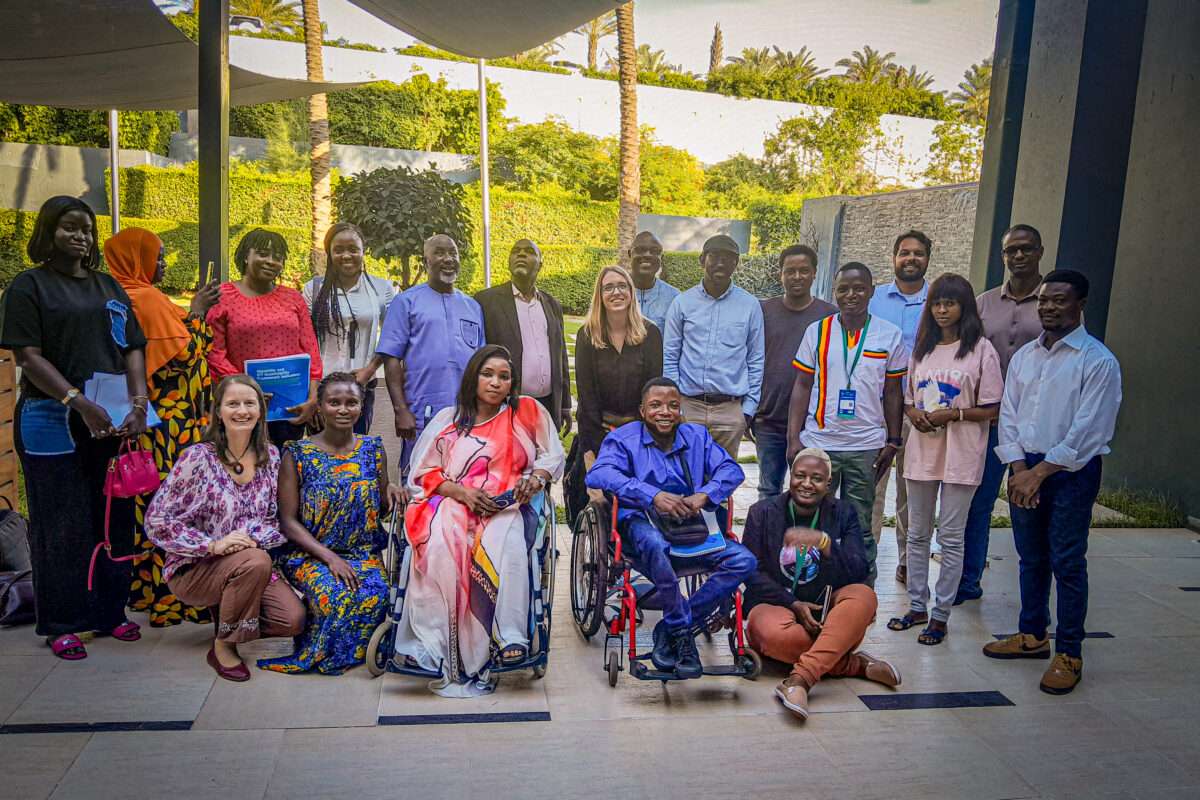By CIPESA Staff |
Despite the recent exponential growth and penetration of inclusive digital technologies in Africa, persons with disabilities have remained disproportionately hindered from enjoying the benefits that come with these technological advancements as they are often excluded from the design, implementation processes, and discussions about the said technologies. As a result, the technology has remained largely inaccessible due to the prohibitive associated costs and unusable because of low levels of digital literacy among persons with disabilities. Additionally, many technologies were not designed with input from persons with disabilities regarding their user needs.
While governments, both at the national and international levels, have made great strides in legislating against the discrimination of persons with disabilities, the vast majority of the laws remain unimplemented. For example, it has taken at least six years for the African Union’s Protocol to the African Charter on Human and Peoples’ Rights relating to the Rights of Persons with Disabilities in Africa to come into force after its 15th ratification by the Republic of Congo in May 2024. The other 14 member states that have ratified the Disability Protocol are Angola, Burundi, Cameroon, Kenya, Mali, Malawi, Mozambique, Namibia, Nigeria, Niger, Rwanda, South Africa, the Sahrawi Arab Democratic Republic, and Uganda.
At the national level, in most countries, there have been only superficial efforts to guarantee that the rights of persons with disabilities to access technology are respected both in the laws and in practice. Efforts to galvanise the demand for digital rights for persons with disabilities have remained few and far between, despite some noticeable increases in the number and capacity of disability rights actors to advocate for the digital rights of persons with disabilities. The growth in capacity has also been hampered by limited direct funding for Organisations of Persons with Disabilities (OPDs), thereby undermining their ability to develop and engage in strategic advocacy, including setting the disability rights agenda.
In addition, crucial interventions at the forefront of digital inclusion remain mostly disjointed, with different players operating in silos to promote the inclusion of women, persons with disabilities, and other vulnerable and marginalised groups. This undermines the cohesion and the impact these efforts would have if they were harmonised.
It was against this background that the Collaboration on International Policy for East and Southern Africa (CIPESA), in partnership with the Center for International Private Enterprise (CIPE), Thomson Reuters Foundation (TRF), and the African Center for Media Excellence (ACME) convened a one-day capacity-building workshop in Dakar, Senegal, for disability rights organisations and other digital rights advocates. The workshop equipped participants with the skills, knowledge, and tools necessary to advance digital rights for persons with disabilities.
The training was part of CIPESA’s ongoing work on digital inclusion particularly for persons with disabilities and was organised as a pre-event at the 11th edition of CIPESA’s annual Forum on Internet Freedom in Africa (FIFAfrica) that took place on September 24-27, 2024. The 21 workshop participants were drawn from Ethiopia, Ghana, the Ivory Coast, Kenya, Senegal, Uganda, and Zimbabwe and included lawyers, academics, journalists, OPDs, media, regulators, civil society organisations, and development partners – all with varying levels of experience working on disability rights.
Paul Kimumwe from CIPESA noted in his remarks that the biggest challenge to advancing digital rights for persons with disabilities has been the inability of advocates to understand and appreciate the intersectionality between disability, technology, and human rights. He added that there is a great focus on the business side especially the “bottom line” by technology developers rather than the needs of the user and how the technology which has become widely available, affects the ability of persons with disabilities to enjoy their fundamental human rights, including the right to education, health, and movement.
Lynnet Onyango from the TRF noted in her presentation that while many African countries have passed progressive laws and policies providing for the rights of access to digital technologies, many of these provisions remain unimplemented, affecting the ability of persons with disabilities to enjoy their fundamental human rights. According to Onyango, the failure to compel broadcasters to provide closed captions and sign language interpretation on their programming denies persons with disabilities access to news and information.
For many participants, the training offered an opportunity to learn and network with disability rights actors from across the continent and build synergies.
“It was interesting to learn that beyond the geographical differences in Africa, disability issues tend to be similar. However, with the influence of culture and technological advances, each country has to address disability challenges in a contextualised manner by localising and customising initiatives to reflect the lived experiences of persons with disabilities.” – Nicodemus Nyakundi, Digital Accessibility Program Officer, Kenya ICT Action Network (KICTANet).
For Dr. Abdul Busuulwa, a disability rights activist and Lecturer in the Department of Community and Disability Studies at Kyambogo University, Uganda, affordability and digital illiteracy remain a big challenge. Dr. Busuulwa noted that many accessible gadgets and assistive technologies are very expensive and the majority of persons with disabilities cannot afford them. In addition, while several open-source software applications provide some assistive technological support, this is not known to many people with disabilities.
In his presentation on engaging with media, Apolo Kakaire from ACME emphasised that, given the central role that the media (both mainstream and online) play in shaping public perceptions and information dissemination, it is crucial that disability rights organisations and activists develop strong and long-term working relationships with newsrooms and individual journalists, including building their capacity on disability rights coverage.
In her opening remarks, Morgan Frost, the Senior Manager of Global Programs at CIPE, highlighted the importance of multi-stakeholder efforts that empower persons with disabilities in the digital age. Frost also underscored that events such as the training workshop serve as a foundation for civil society, the local private sector, and media organisations working on digital inclusion efforts to share lessons learned and develop advocacy strategies that advance more accessible digital spaces.


